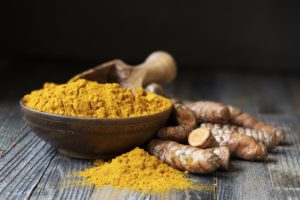 Whether or not you like the taste of curry, you can’t deny the popularity of turmeric in the health space. In recent years—or should I say centuries—the spice has been touted for its ability to reduce inflammation, promote immunity, and a host of other benefits. But are you really getting the most out of it?
Whether or not you like the taste of curry, you can’t deny the popularity of turmeric in the health space. In recent years—or should I say centuries—the spice has been touted for its ability to reduce inflammation, promote immunity, and a host of other benefits. But are you really getting the most out of it?
Curcumin is what makes turmeric so unique. It’s the yellow spice’s primary active compound, acting as a powerful antioxidant and anti-inflammatory. But if you simply add turmeric to your curry dishes or chili, you might not get the same benefits. You’ll get the rich golden or yellow color, but the benefits might not be there. That’s why extracts are often used.
Advertisement
One of the biggest drawbacks of curcumin, from a health perspective, is that it isn’t easily absorbed in the body. But that can change if you take it with black pepper.
Black pepper can boast a pretty impressive list of health benefits too, but it may shine the brightest by helping boost absorption of turmeric, aka the super spice. The compound responsible for many of black pepper’s benefits, like taming nausea, headaches, and poor digestion, along with helping to absorb curcumin, is piperine.
Although exactly how piperine improves curcumin absorption is not fully understood, it’s been noted that when taken together, the benefits are enhanced substantially. is especially useful if you’re trying to battle chronic inflammation.
Some studies have shown that curcumin can have the same anti-inflammatory strength as medications, while even preventing or treating arthritis. Piperine can have anti-inflammatory and anti-arthritic effects too, through an ability to desensitize pain receptors.
Advertisement
When combined, it’s possible that the pain-relieving and anti-inflammatory effects of these compounds are enhanced. Because they have a different way of going about pain relief and inflammation, they may provide better overall relief, while also allowing you to experience more relief at a lower dosage.
To get the most from turmeric to fight pain and inflammation, or battle inflammatory conditions, try taking 20 mg of piperine for every 2 g of curcumin. This ratio has shown to significantly increase absorption.
Get more from your spices and supplements by using complimentary products. It helps you save money and live healthier.
